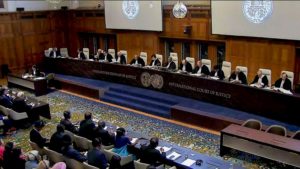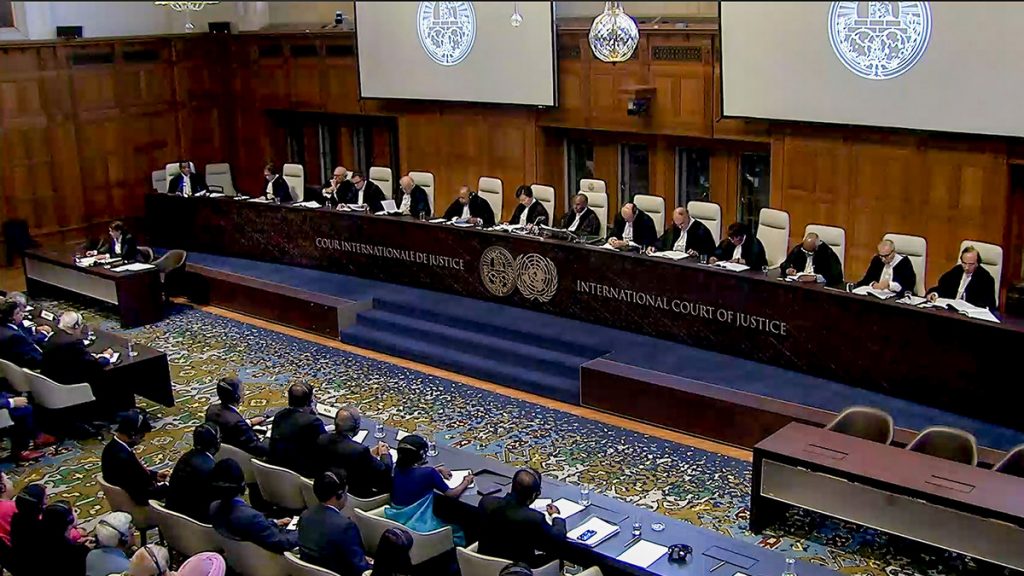 The Hague-based International Court of Justice has ordered Myanmar to take emergency measures to prevent genocide of the Rohingya.
The Hague-based International Court of Justice has ordered Myanmar to take emergency measures to prevent genocide of the Rohingya.
In a unanimously-ruled order issued by a panel of 17 judges, and read by presiding Judge Abdulaqawi Ahmed Yusuf, the court upheld the provisions of the 1948 Genocide Convention – saying Myanmar had “caused irreparable damage to the rights of the Rohingya”
According to the Statute of the ICJ, the court has the power to order provisional measures when “irreparable prejudice could be caused to rights which are the subject of judicial proceedings”. The court found that the condition of urgency had been met in this case.
In November the Gambia filed a suit against Myanmar alleging it was committing “an ongoing genocide against its minority Muslim Rohingya population” and violating the 1948 Genocide Convention.
Provisional measures are steps to take aimed at preventing further harm and comes as the
first step in the legal case.
Judge Yusuf took care to emphasise the ordering of provisional measures did not “prejudge” the case. As Mike Becker, adjunct lecturer at Trinity College in Dublin and a former legal officer at the ICJ, emphasises: “This is a preliminary decision that is without prejudice to the merits of the case.”
Because of the gravity of the crimes of which Myanmar has been accused, Becker and other legal experts described the case as an “historic legal challenge“.
Urgent measures requested and ordered
In its application to the court, the Gambia requested six provisional measures requiring Myanmar to act “with immediate effect” to prevent further genocide of the Rohingya group and to take steps not to destroy or render inaccessible any evidence already described in the application.
The Gambia also urged both sides not to take any action which might aggravate the dispute or render it more difficult to resolve, and to provide a report to the court on implementing such measures.
The Gambia later also requested Myanmar cooperate with United Nations bodies that seek to investigate the alleged acts.
Judge Yusuf said the court was not constrained to ordering the measures requested by the Gambia and that it had the power to order additional measures. Yusuf further said that, in ordering provisional measures in this case, it was not necessary to decide on the question of the presence of genocidal intent, as claimed by Myanmar.
The court ordered Myanmar should take all measures within its power to prevent the commission of all acts within the scope of article two of the Genocide Convention. It particularly cited clause one – killing members of the group, clause two – causing serious bodily or mental harm to members of the group, clause three – deliberately inflicting on the group conditions of life calculated to bring about its destruction in whole or in part, and clause four – imposing measures intended to prevent births within the group.
Myanmar must further ensure that its military does not commit genocide or attempts to commit genocide or conspires to commit genocide. Myanmar was also ordered to prevent the destruction of evidence and to ensure the preservation of evidence related to the alleged genocide.

